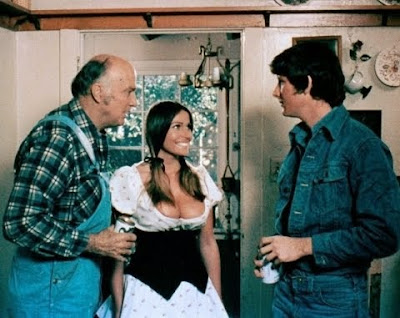David Lynch: The Art Life
Painting. Coffee. Smoking. That's it. That's the "art life" according to a painter named Bushnell Keeler who would become an invaluable influence and a mentor to a young artist named David Lynch, who had little interest in his high school studies but could spend hours lost in a canvas. He was serious about his art. The man rented Lynch a studio, then later encouraged him to go back to art school. The first go-round in Boston wasn't too successful. Frustrated, Lynch and friend Jack Fisk decided to go to Austria to train with Oskar Kokoschka for the next three years, but returned after two weeks.
The duo, who would work together years later on Lynch's debut film, ERASERHEAD, then found themselves at the Pennsylvania Academy of Fine Arts in Philadelphia. Lynch was inspired by his classmmates and despite its frightening atmosphere, the city itself. As David Lynch describes a neighbor who thought she was a chicken, walking around on her hands and knees and exclaiming that her nipples hurt, you can see where just about every subsequent idea Lynch would put onscreen was born. He should thank the city of brotherly love for its catalyst of dread, a fountain of grotesquery. A place that "sucks your happiness away and fills you with sadness and fear."
2016's DAVID LYNCH: THE ART LIFE, directed by Jon Nguyen, is a pastiche of luscious images of its subject at work in his studio, working with paint and etchings, and sitting in front of a studio microphone on a porch, reminiscing of his early years. His toddler daughter occasionally wanders through. Interspersed are old photographs and home movies, with glimpses of his early short films that lead to an AFI grant which would eventually fund ERASERHEAD. THE ART LIFE concludes with a discussion of that groundbreaking feature, its five years in the making.
Prior, in between long pauses and long drags on cigarettes (framed beautifully, it must be said). Lynch gives us some detail of his childhood. His fondness for Idaho and his disdain for Virginia. His hatred for academia. That patented tenor of a voice weaves his history as compellingly as his surreal films and television programs portray nightmares. I could listen for days on end. I could also watch him paint just as long; the movie needed more such scenes. There is something very reassuring about watching and listening to the man, even as describes his early experiments of watching the stages of the decay of fruit, or how dead insects figured into his art.
Lynch seems to be living the art life these days, and even though he recently devoted a few years to revisiting the Twin Peaks universe, I suspect he'd be just as content with a palate knife and stencil brushes.




Comments